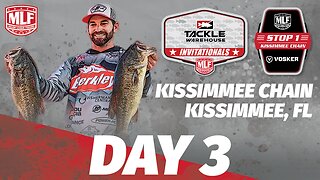Premium Only Content

The Milgram experiment on obedience to authority figures (1961)
One of the most famous studies of obedience in psychology was carried out by Stanley Milgram, a psychologist at Yale University. He conducted an experiment focusing on the conflict between obedience to authority and personal conscience.
Milgram (1963) examined justifications for acts of genocide offered by those accused at the World War II, Nuremberg War Criminal trials. Their defense often was based on "obedience" - that they were just following orders from their superiors.
Milgram suggested that two things must be in place for a person to enter the agentic state:
1. The person giving the orders is perceived as being qualified to direct other people’s behavior. That is, they are seen as legitimate.
2. The person being ordered about is able to believe that the authority will accept responsibility for what happens.
Results from the experiment. Some teachers refused to continue with the shocks early on, despite being urged by the experimenter. This is the type of response Milgram expected as the norm, but those who questioned authority were in the minority. Sixty-five percent (65%) of the teachers were willing to progress to the maximum voltage level.
Participants demonstrated a range of negative emotions about continuing. Some pleaded with the learner, asking the actor to answer questions carefully. Others started to laugh nervously and act strangely in diverse ways. Some subjects appeared cold, hopeless, somber, or arrogant. Some thought they had killed the learner. Nevertheless, participants continued to obey, discharging the full shock to learners. One man who wanted to abandon the experiment was told the experiment must continue. Instead of challenging the decision of the experimenter, he proceeded, repeating to himself, "It's got to go on, it's got to go on."
In general, more submission was elicited from "teachers" when (1) the authority figure was in close proximity; (2) teachers felt they could pass on responsibility to others; and (3) experiments took place under the auspices of a respected organization.
Participants were debriefed after the experiment and showed much relief at finding they had not harmed the student. One cried from emotion when he saw the student alive, and explained that he thought he had killed him. But what was different about those who obeyed and those who rebelled? Milgram divided participants into three categories:
1. Obeyed but justified themselves. Some obedient participants gave up responsibility for their actions, blaming the experimenter. If anything had happened to the learner, they reasoned, it would have been the experimenter�s fault. Others had transferred the blame to the learner: "He was so stupid and stubborn he deserved to be shocked."
2. Obeyed but blamed themselves. Others felt badly about what they had done and were quite harsh on themselves. Members of this group would, perhaps, be more likely to challenge authority if confronted with a similar situation in the future.
3. Rebelled. Finally, rebellious subjects questioned the authority of the experimenter and argued there was a greater ethical imperative calling for the protection of the learner over the needs of the experimenter. Some of these individuals felt they were accountable to a higher authority.
Why were those who challenged authority in the minority? So entrenched is obedience it may void personal codes of conduct.
Additional Reading:
https://nature.berkeley.edu/ucce50/ag-labor/7article/article35.htm
See Also: The Asch Experiment
https://youtu.be/m4q_xVEB_h8
An experiment highlighting the phenomenon that occurs when a group of well-intentioned people makes irrational or non-optimal decisions spurred by the urge to conform or the belief that dissent is impossible. The problematic or premature consensus that is characteristic of groupthink may be fueled by a particular agenda—or it may be due to group members valuing harmony and coherence above critical thought.
-
 LIVE
LIVE
Vigilant News Network
6 hours agoUK Government BUSTED in Secret Plot to Extract Your Data | Media Blackout
1,486 watching -
 1:03:32
1:03:32
Winston Marshall
3 days ago"War On Children!" The DEMISE Of The West Starts With Schools - Katharine Birbalsingh
73.6K61 -
 48:02
48:02
Survive History
9 hours ago $1.67 earnedCould You Survive as a Sharpshooter in the Napoleonic Wars?
21.1K2 -
 12:03
12:03
Space Ice
10 hours agoSteven Seagal's China Salesman - Mike Tyson Knocks Him Out - Worst Movie Ever
13.4K14 -
 11:37
11:37
Degenerate Jay
9 hours ago $1.60 earnedJames Bond Needs Quality Over Quantity From Amazon
12.5K2 -
 15:23
15:23
Misha Petrov
10 hours agoTrad Wives & Girl Bosses Go to WAR!
14K32 -
 2:03:11
2:03:11
TheDozenPodcast
8 hours agoFootball villain fighting the state: Joey Barton
15.4K1 -
 LIVE
LIVE
Scottish Viking Gaming
11 hours ago💚Rumble :|: Sunday Funday :|: Smash the Blerps and Vape the Terpes
543 watching -
 1:45:00
1:45:00
RG_GerkClan
13 hours ago🔴LIVE Sunday Special - It's Time for World Domination - Civilization VII - Gerk Clan
66.1K27 -
 LIVE
LIVE
Major League Fishing
4 days agoLIVE Tackle Warehouse Invitationals, Stop 1, Day 3
165 watching